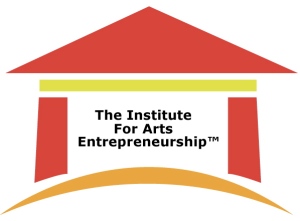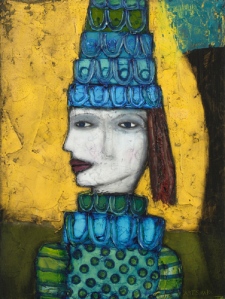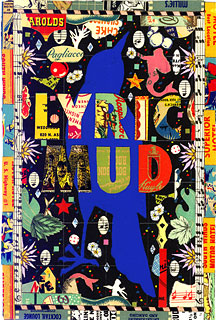 Why be an artist? This is a fundamental question whose answer ultimately defines our creativity. The most honest and successful musicians will find their answers by looking inside themselves. The beauty of this question is that there are no wrong answers. Do we musicians wish to perform for the world? Or perhaps our focus is on a more limited, select group of people. It is with this mindset that I approach the future.
Why be an artist? This is a fundamental question whose answer ultimately defines our creativity. The most honest and successful musicians will find their answers by looking inside themselves. The beauty of this question is that there are no wrong answers. Do we musicians wish to perform for the world? Or perhaps our focus is on a more limited, select group of people. It is with this mindset that I approach the future.
When I was six years old, my father took me to a violin shop. Some years later, I was told by my grandmother that this trip was inspired by a performance given by a medical resident at the beginning of a conference. Although my initial attitude to the violin was care-free, I always liked music as a child. I remember dancing around the living room to my mom’s piano playing. In fact, there are somewhat embarrassing home videos of me twirling around in circles to a recording of a march by John Philip Sousa.
Soon after the violin was purchased, my parents enrolled me in the Cleveland Institute of Music’s Suzuki Method program – a philosophy that encourages a nurturing approach to learning. Practicing was always encouraged through positive affirmation. The teachers instilled in me the joy of a job well done through stickers, candy, and other prizes. I will also never forget the “play-ins”, where scores of violinists would perform together for an audience of parents and friends, at least twice a year. It was this carrot and stick approach to practicing, coupled with the social aspect of making music together, that would eventually grow on me progressively, yet deliberately.
As I matured into my teenage years, I started to recognize that I had an ability to communicate that made me unique. Whether it was the joy people felt of watching a young violinist and his mother on the piano, or the power of the music I played, people were moved by my performances. Around the time I started applying to colleges I remember thinking “This is what I want to do. I want to move people and influence them positively through my music”. Looking back, I now realize that I wanted to inspire people the way I was inspired. Yet, I didn’t quite know how this was possible. Could the mere act of playing for an audience really create a long-lasting impression?
The short answer is “no”. My four years at the New England Conservatory in Boston were a wake-up call. I realized that although I was gifted, there are plenty of amazing musicians out there who were trying to “make it” purely as performers. We were trained to be soloists and orchestral musicians. We were also told, quite often, that despite our wonderful education, the field of music was horribly competitive and that the ideas that most of us had of how to “make it” were, unfortunately, outdated. I recall spending many nights and many discussions with my colleagues worrying about the future of classical music. Yet, I saw a glimmer of hope. In my last year, I started to teach a private student. Little did I know that this would develop into a passion, later on.
My next stage was a two year Masters program at the Royal College of Music in London. While the earlier pessimism about performing still remained, a voice inside me kept saying, “You’re not finished! You haven’t reached your full potential yet. Keep practicing and be a performer!” This was followed by an additional three years of concerts and coursework at Boston University in the Doctor of Musical Arts Program.
The Boston University program consisted of a rigorous curriculum of solo recitals, regular orchestral playing, chamber music, music theory, and music history. I came out of this program incredibly well rounded.
In tandem with my studies at BU, I also taught for two years at the Powers Music School – a small community-based institution that provides lessons for adults and children. Pivotally, I learned that I could communicate and inspire the way I had always wanted to, not only through performing, but through teaching as well. A further year of teaching in the public schools of Birmingham, England, helped me to confirm the fact that teaching is truly is a medium that enables me to transmit the life-long inspiration that I so longed to impart.
Back in Boston, I now find myself at a crucial juncture. I have just finished my doctorate degree and am teaching privately. I am also preparing to play private concerts in a few months. I am doing exactly what I want to do with my life. This is one of the most wonderful blessings one can ask for. Yet, I now need to create capital and use my talents in a way that is marketable.
It appears more and more likely that my dual-approach to performing and teaching will play a large role in my future. I am thinking very strongly about starting my own school one day. I want to teach all ages, as I have done, and I want to build an audience. I believe that directing my own school could allow me to inspire people, just as I have always wanted to do.
Yet, what I believe makes me unique is my unwavering conviction that music lessons have the ability to transcend the instrument. With the right faculty, a whole new approach to learning can be taught. As the pedagogue Shinichi Suzuki said, too many of us were “damaged by the wrong kind of education” . It is my belief that I have what it takes to find that crucial equilibrium between inspiration and discipline. The best teachers and mentors do not spoon-feed. Nor do they impose their ways. Rather, they empower individuals through a careful balancing act of praise and patient firmness. It is this “I can” attitude that creates the character traits necessary for success in any discipline.
written by Dr. Daniel Broniatowski.
www.musicteachersboston.com









